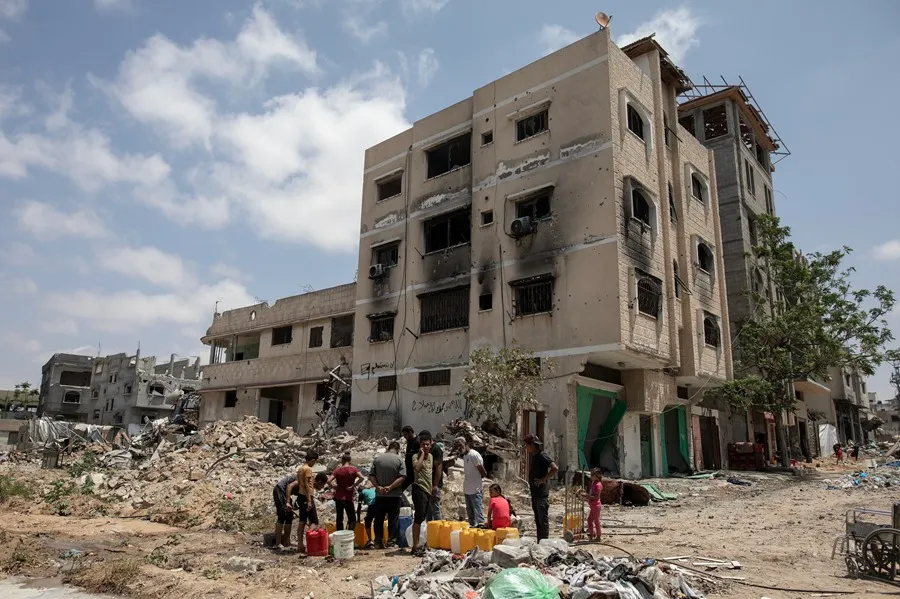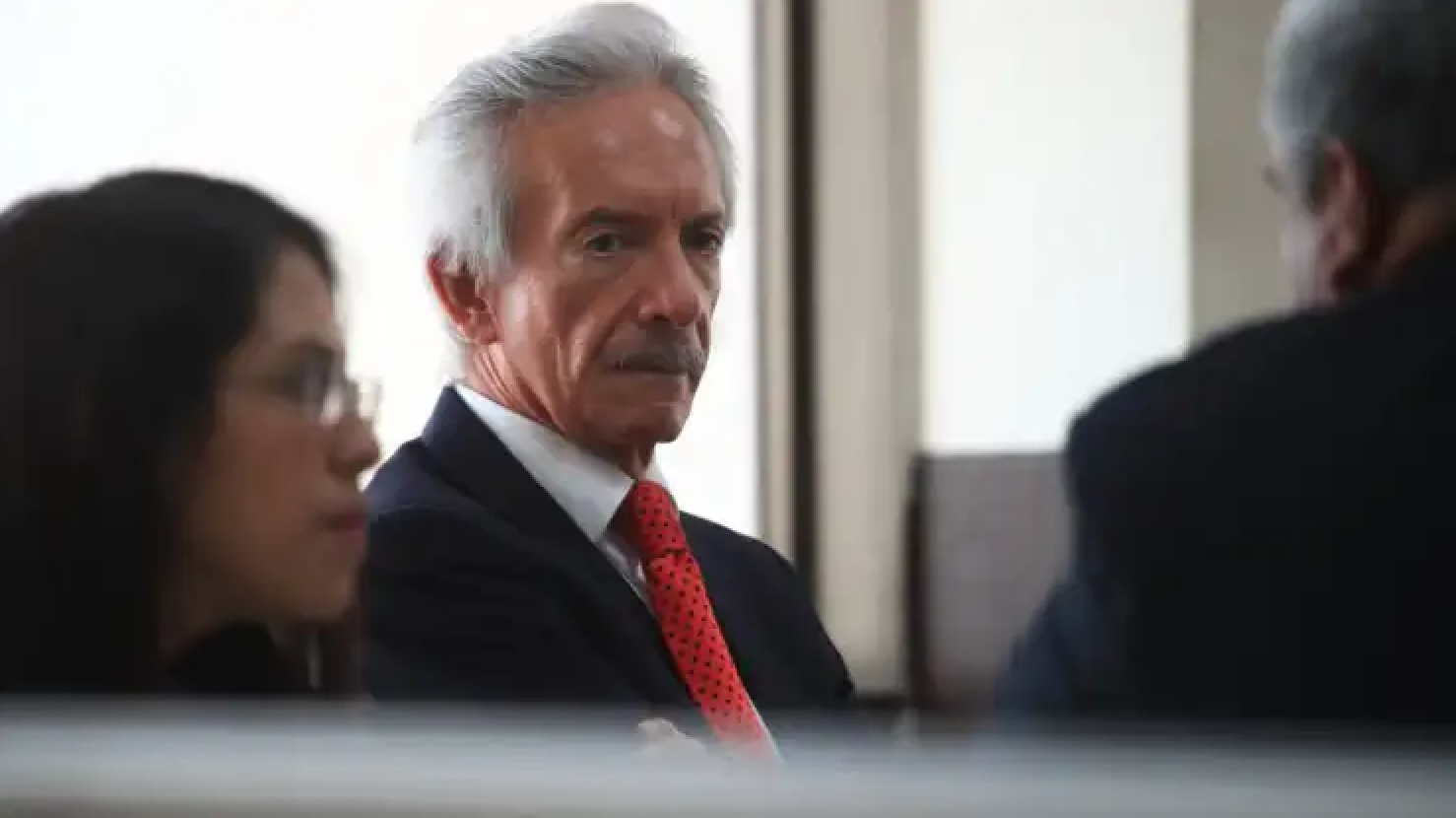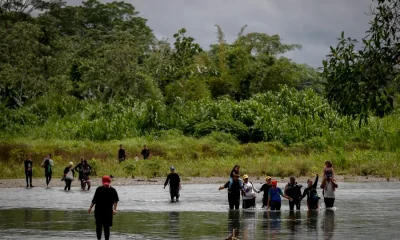International
Deaths in Gaza rise to 34,622, after the deaths of 26 people in the last few hours

The number of deaths in the Gaza Strip due to the Israeli offensive has increased to 34,622, after hospitals in the area reported the death of 26 people in recent hours, the Ministry of Health, controlled by the Government of Hamas, reported on Friday.
“The Israeli occupation committed 3 massacres against families in the Gaza Strip, including 25 deaths and 51 people injured, during the last 24 hours,” the Ministry said in a brief statement, in which it recalled that there are numerous corpses under the rubble and in areas inaccessible to emergency services, due to attacks by the Israeli Army.
In addition, the Ministry detailed that in the 210 days of the Israeli military offensive, 77,867 people have been injured.
The Palestinian agency Wafa had reported the death of at least six Palestinians during the night of Thursday to Friday, including four children, in an Israeli airstrike against a residential building in the city of Rafah, in the south of the Gaza Strip, turned into the last refuge for the displaced from the north.
Local sources told Wafa that Israeli fighter planes bombed a residential building in Rafah, resulting in the death of six civilians, four children and two adults. In addition, an indeterminate number of people were injured.
Another residential building east of this border city with Egypt, which awaits a land offensive and where more than 1.4 million Palestinians live overcrowded, was also bombed causing civilians to be injured, the Palestinian agency details.
Another nine civilians were injured in the center of the enclave, after an Israeli attack on the Bureij refugee camp, according to Palestinian sources, who did not determine their number.
No conflict has caused a level of destruction similar to that of Gaza since World War II, the United Nations reported, which estimated that post-war reconstruction could cost up to $50 billion.
“We have not seen anything like this since 1945,” Abdallah al Dardari, director of the Regional Office for the Arab States of the UN Development Programme (UNDP), said on Thursday. “That intensity, in such a short time and the massive scale of destruction,” he added.
More than 70% of all the homes in the enclave have been destroyed, lamented this UN official, and assured that it will be necessary to remove about 37 million tons of debris.
In comparison, during Israel’s war in Gaza in 2014, which lasted 51 days of summer, about 2.4 million tons of ruins were removed.
The World Health Organization (WHO) declared itself “extremely concerned” about Israeli plans to intervene on a large scale military in Rafah, at the southern end of the Gaza Strip, where 1.2 million Palestinians are overcrowded, many after fleeing months of hostilities further north.
Such an operation “would make the humanitarian catastrophe even more worse,” said the representative of the WHO in the Palestinian Territories, Rik Peeperkorn, at a press conference.
He also stressed that the WHO and its partners are making contingency plans to ensure that the health system is prepared for a military operation, although he recalled that in many cases, as has happened in areas further north of Gaza, many hospitals are no longer accessible or are even direct targets of armed attacks.
As part of its preparations for a possible large-scale operation, WHO has established a new field hospital in Rafah, and a storage area for medical supplies.
“Despite the measures we take, the health system, already weakened, will not be able to withstand the enormous devastation that the incursion would possibly cause,” he said.
Peeperkorn expressed his fear that the three hospitals in Rafah will lose the ability to care for patients in the event of a large-scale operation.
He concluded by noting that Gaza’s health system “barely survives,” with only 12 of the 36 hospitals in the strip and 22 of the 88 health facilities partially functioning.
The Israeli Prime Minister, Benjamin Netanyahu, reiterated on Thursday that the invasion of Rafah, a city bordering Egypt and turned into the last refuge of the Palestinians, is still standing, despite the parallel negotiations with Hamas on a possible ceasefire.
International
Trump urges Putin to reach peace deal

On Monday, U.S. President Donald Trump reiterated his desire for Russian President Vladimir Putin to “reach a deal” to end the war in Ukraine, while also reaffirming his willingness to impose sanctions on Russia.
“I want to see him reach an agreement to prevent Russian, Ukrainian, and other people from dying,” Trump stated during a press conference in the Oval Office at the White House.
“I think he will. I don’t want to have to impose secondary tariffs on Russian oil,” the Republican leader added, recalling that he had already taken similar measures against Venezuela by sanctioning buyers of the South American country’s crude oil.
Trump also reiterated his frustration over Ukraine’s resistance to an agreement that would allow the United States to exploit natural resources in the country—a condition he set in negotiations to end the war.
International
Deportation flight lands in Venezuela; government denies criminal gang links

A flight carrying 175 Venezuelan migrants deported from the United States arrived in Caracas on Sunday. This marks the third group to return since repatriation flights resumed a week ago, and among them is an alleged member of a criminal organization, according to Venezuelan authorities.
Unlike previous flights operated by the Venezuelan state airline Conviasa, this time, an aircraft from the U.S. airline Eastern landed at Maiquetía Airport, on the outskirts of Caracas, shortly after 2:00 p.m. with the deportees.
Interior Minister Diosdado Cabello, who welcomed the returnees at the airport, stated that the 175 repatriated individuals were coming back “after being subjected, like all Venezuelans, to persecution” and dismissed claims that they belonged to the criminal organization El Tren de Aragua.
However, Cabello confirmed that “for the first time in these flights we have been carrying out, someone of significance wanted by Venezuelan justice has arrived, and he is not from El Tren de Aragua.” Instead, he belongs to a gang operating in the state of Trujillo. The minister did not disclose the individual’s identity or provide details on where he would be taken.
International
Son of journalist José Rubén Zamora condemns father’s return to prison as “illegal”

The son of renowned journalist José Rubén Zamora Marroquín, José Carlos Zamora, has denounced as “illegal” the court order that sent his father back to a Guatemalan prison on March 3, after already spending 819 days behind barsover a highly irregular money laundering case.
“My father’s return to prison was based on an arbitrary and illegal ruling. It is also alarming that the judge who had granted him house arrest received threats,” José Carlos Zamora told EFE in an interview on Saturday.
The 67-year-old journalist was sent back to prison inside the Mariscal Zavala military barracks on March 3, when Judge Erick García upheld a Court of Appeals ruling that overturned the house arrest granted to him in October. Zamora had already spent 819 days in prison over an alleged money laundering case.
His son condemned the situation as “unacceptable”, stating that the judge handling the case “cannot do his job in accordance with the law due to threats against his life.”
-

 Central America5 days ago
Central America5 days agoNicaragua denounces Costa Rica’s position in SICA as aligned with foreign interests
-

 Central America5 days ago
Central America5 days agoNicaragua’s new judicial law consolidates power in Ortega and Murillo’s hands
-

 Central America5 days ago
Central America5 days agoPanama’s president declares Darién gap ‘closed’ amid sharp drop in migrant flow
-

 International3 days ago
International3 days agoSon of journalist José Rubén Zamora condemns father’s return to prison as “illegal”
-

 International5 days ago
International5 days agoMarco Rubio warns Venezuela against military action against Guyana
-

 International3 days ago
International3 days agoMiyazaki’s style goes viral with AI but at what cost?
-

 Central America2 days ago
Central America2 days agoPanama police clarifies that Interpol alert for Martinelli is still pending
-

 International2 days ago
International2 days agoDeportation flight lands in Venezuela; government denies criminal gang links
-

 Central America16 hours ago
Central America16 hours agoU.S. Homeland Security Secretary urges Mexico to strengthen Guatemala border
-

 International16 hours ago
International16 hours agoTrump urges Putin to reach peace deal
-

 Central America16 hours ago
Central America16 hours agoPanama grants Martinelli 72-hour extension to travel to Nicaragua
-
Central America4 days ago
Nicaragua revokes legal status of 10 more NGOs, bringing total to over 5,600















